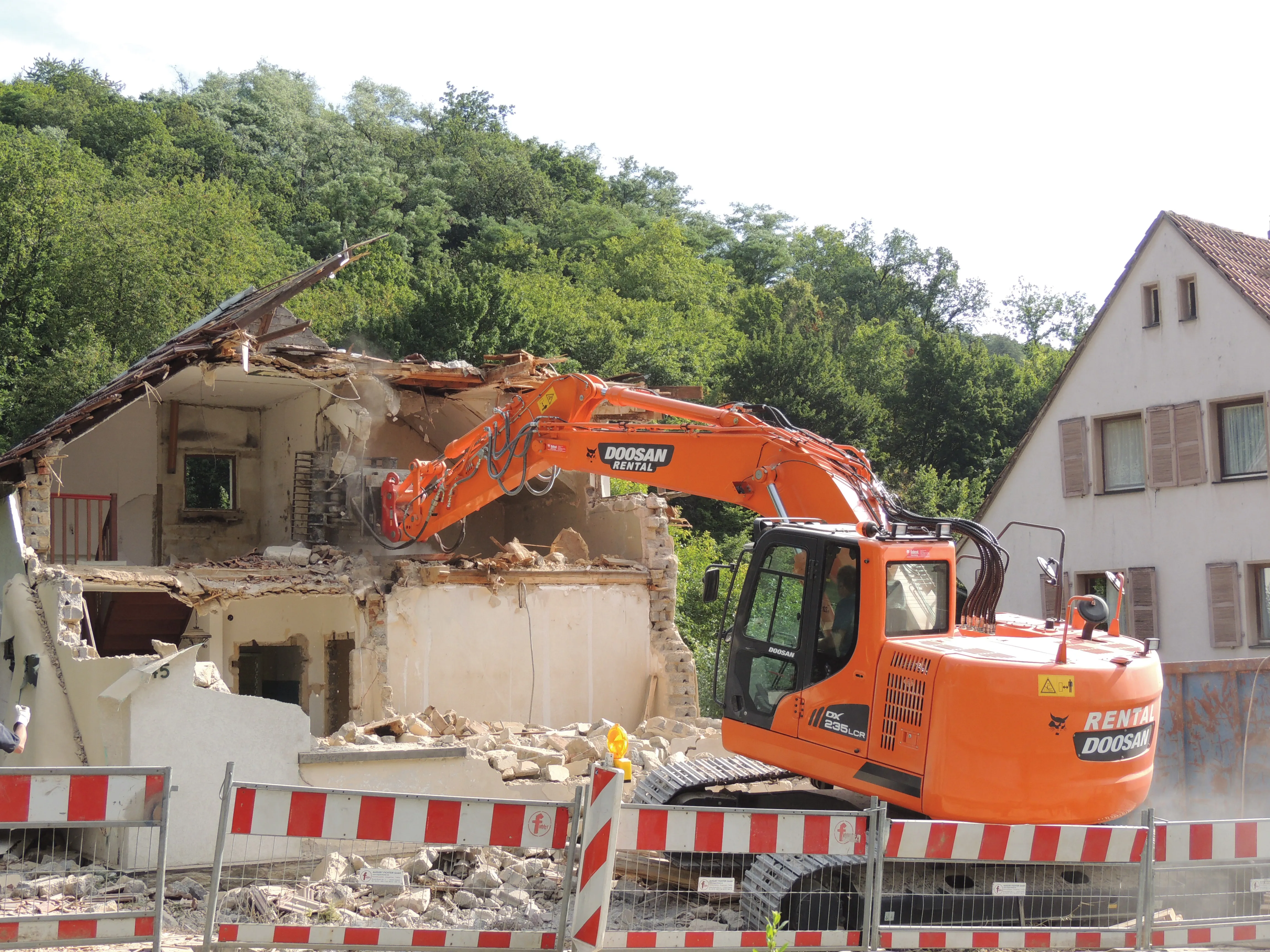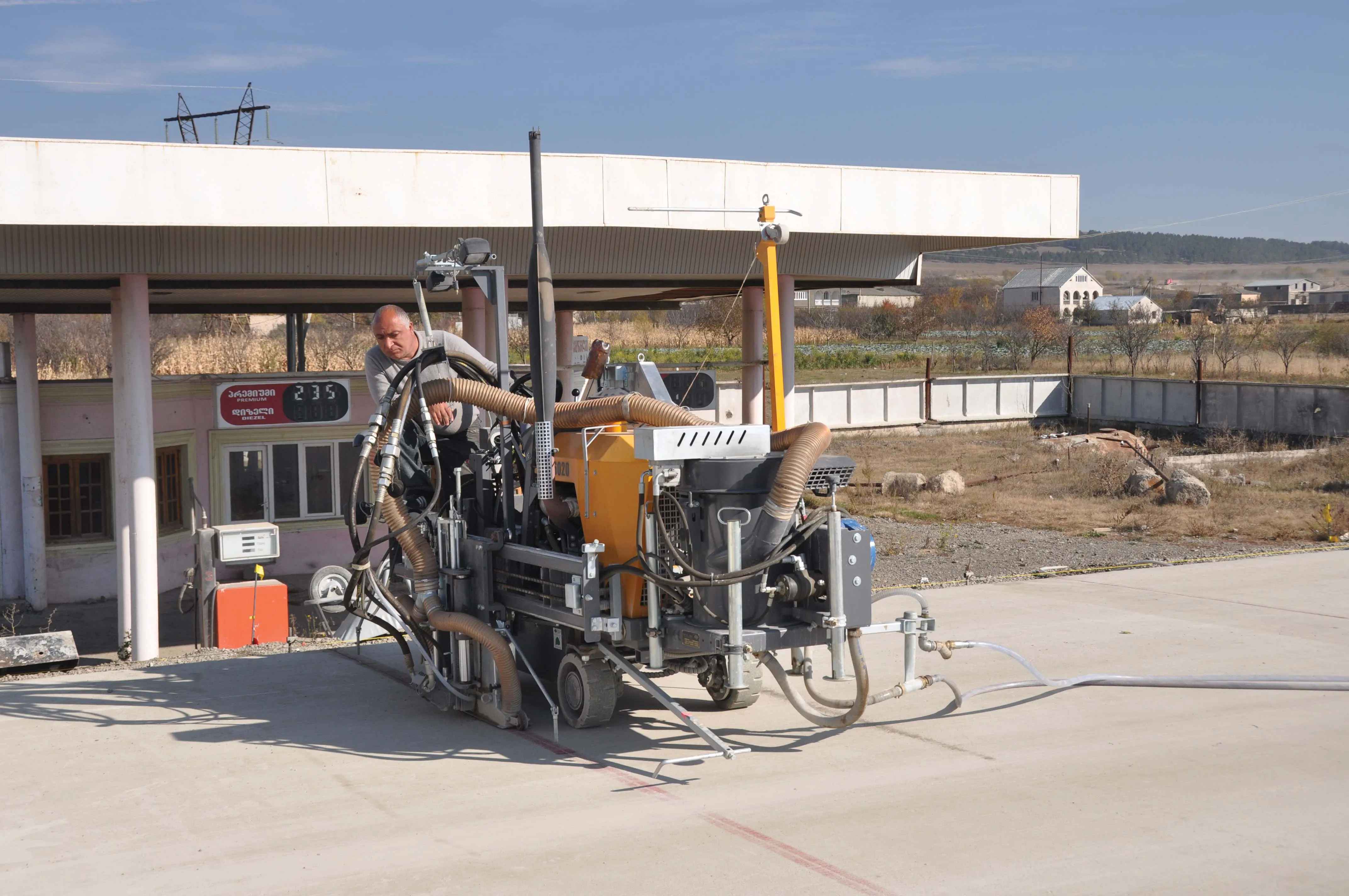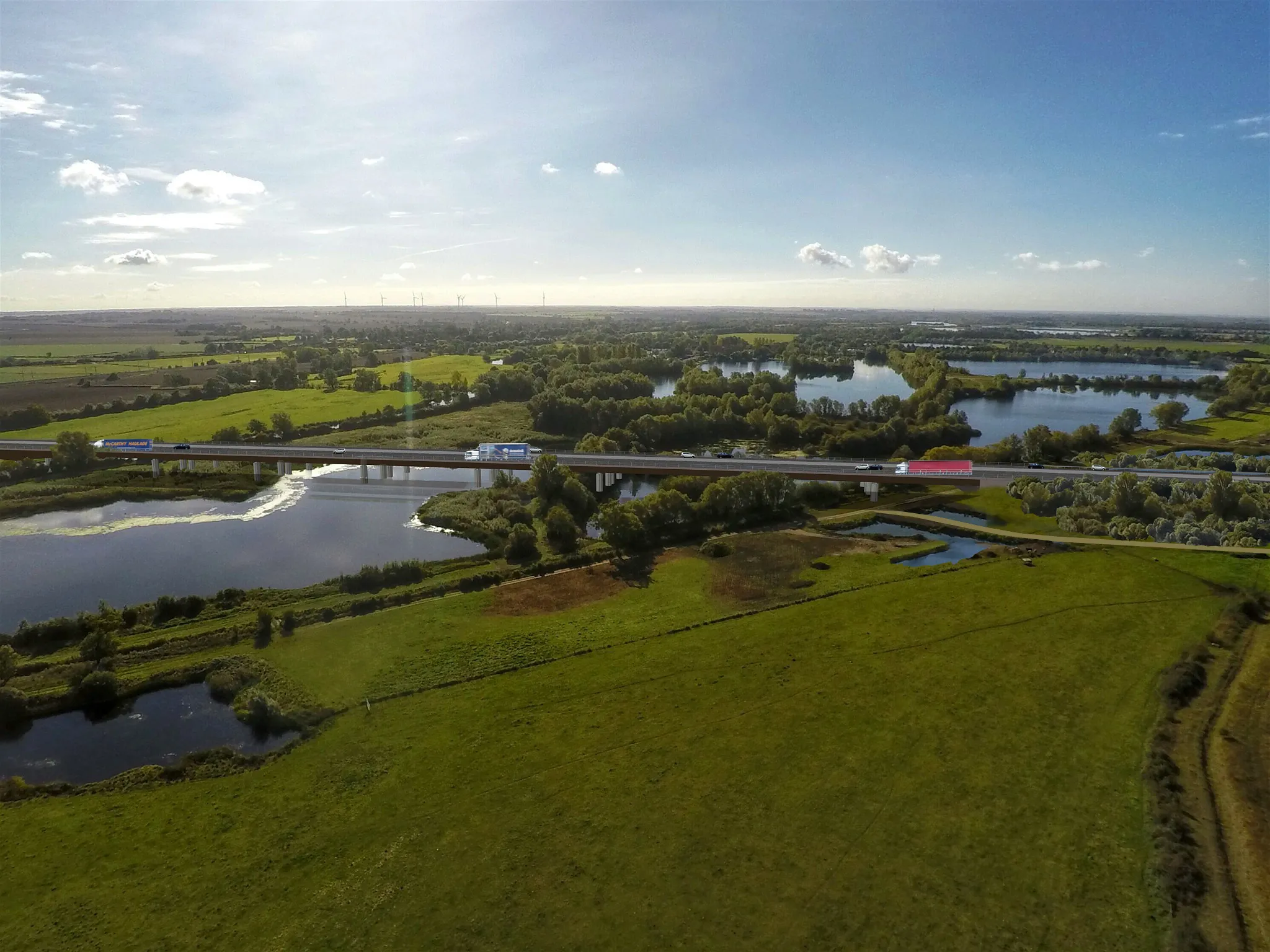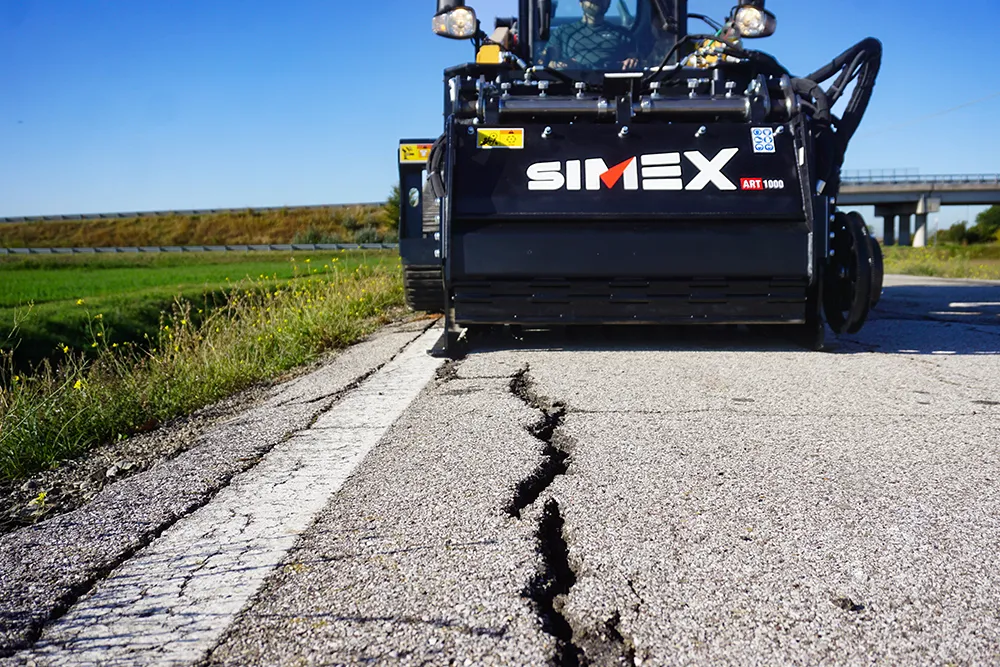In Germany a short tailswing excavator from Doosan has carried out a tricky demolition project. The DX235LCR machine was used to demolish an old residential property, located in close proximity to a road. Belgian demolition contractor Klaus Anthes was brought in to carry out the work in Eppstein in Germany, and used the 24tonne excavator for the job. The work was tricky as the house was located on the side of a hill and also next to a narrow road. However traffic could not be disturbed so the machine had to
November 29, 2012
Read time: 2 mins

In Germany a short tailswing excavator from 695 Doosan has carried out a tricky demolition project. The DX235LCR machine was used to demolish an old residential property, located in close proximity to a road. Belgian demolition contractor Klaus Anthes was brought in to carry out the work in Eppstein in Germany, and used the 24tonne excavator for the job.
The work was tricky as the house was located on the side of a hill and also next to a narrow road. However traffic could not be disturbed so the machine had to work within the boundary of the property. Meanwhile the existing natural stone cellar had to be left in place as this was to provide the base for the new property planned for the site, while the garden to the rear also had to be left as this is in a protected natural area.
The contractor rented the excavator along with a sorting grapple from1130 Bobcat Bensheim. The 24tonne excavator was useful for this project as it features a short radius design with only 185mm of overhang and a swing diameter of just 3.99m, allowing the contractor to work in confined spaces. Reach and stability were also important, to allow the machine to work on the slope.
The work was tricky as the house was located on the side of a hill and also next to a narrow road. However traffic could not be disturbed so the machine had to work within the boundary of the property. Meanwhile the existing natural stone cellar had to be left in place as this was to provide the base for the new property planned for the site, while the garden to the rear also had to be left as this is in a protected natural area.
The contractor rented the excavator along with a sorting grapple from









